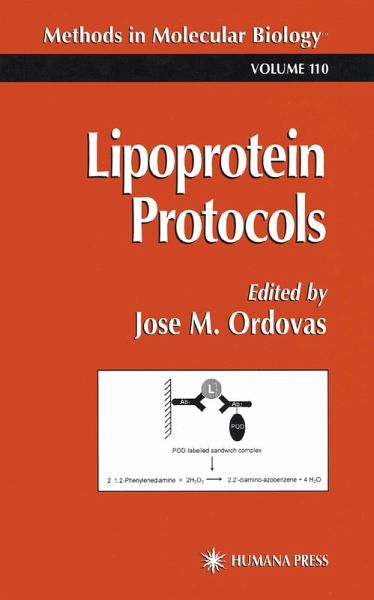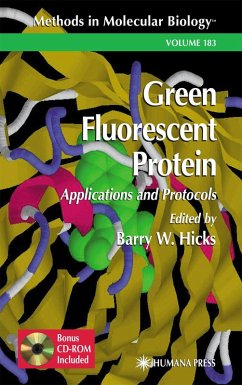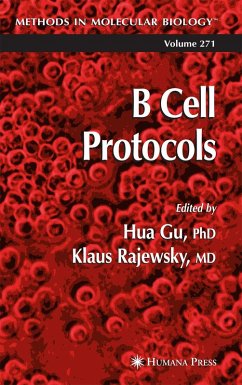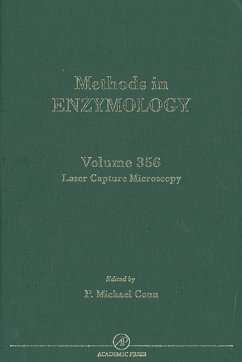
Lipoprotein Protocols (eBook, PDF)
Versandkostenfrei!
Sofort per Download lieferbar
72,95 €
inkl. MwSt.
Weitere Ausgaben:

PAYBACK Punkte
36 °P sammeln!
In Lipoprotein Protocols, Jose Ordovas compiles a cutting-edge collection of molecular protein techniques for studying advanced aspects of lipoprotein structure and metabolism. These step-by-step methods allow both the beginning and the advanced researcher to carry out not only fundamental, but also the most advanced genetic screening techniques, including RT-PCR and the preparation of relevant models of transgenic and knockout mice. In addition, novel techniques are presented to characterize plasma lipoproteins, their subfractions, and their modifications, and to determine the activity of rel...
In Lipoprotein Protocols, Jose Ordovas compiles a cutting-edge collection of molecular protein techniques for studying advanced aspects of lipoprotein structure and metabolism. These step-by-step methods allow both the beginning and the advanced researcher to carry out not only fundamental, but also the most advanced genetic screening techniques, including RT-PCR and the preparation of relevant models of transgenic and knockout mice. In addition, novel techniques are presented to characterize plasma lipoproteins, their subfractions, and their modifications, and to determine the activity of relevant enzymes and carrier proteins. Each method is described in easily reproducible detail by hands-on experts who have perfected it. Lipoprotein Protocols offers many powerful tools for unraveling the complexity of lipoprotein metabolism and determining the individual risk of coronary heart disease. For all those basic and clinical investigators seeking to advance the frontier of lipoprotein research and develop novel genetic therapies for the treatment of cardiovascular disease, this eminently useful book constitutes the new standard reference and guide.
Dieser Download kann aus rechtlichen Gründen nur mit Rechnungsadresse in A, B, BG, CY, CZ, D, DK, EW, E, FIN, F, GR, HR, H, IRL, I, LT, L, LR, M, NL, PL, P, R, S, SLO, SK ausgeliefert werden.












